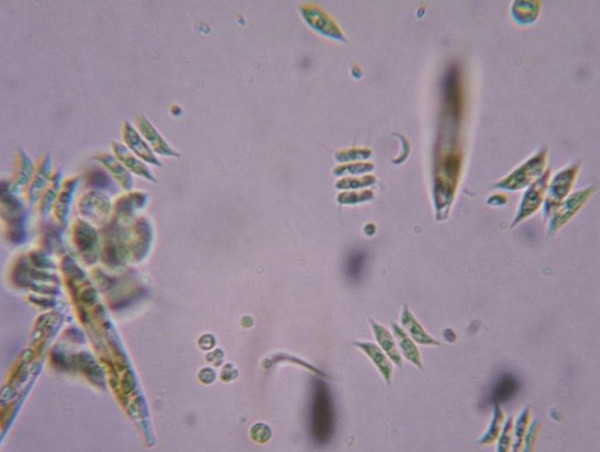Discovering a virus that can make people stupid
Scientists at the Johns Hopkins University of Medicine and University of Nebraska have discovered an algae virus that could affect the brain and make us stupid.
Find a virus that makes people stupid?
This virus was found when scientists conducted a study on throat bacteria. They found that the DNA in the throat of healthy people coincided with the DNA of a virus called ATCV-1.
ATCV-1 is a blue-green poison virus commonly found in freshwater lakes. The virus was once thought to be incapable of spreading to humans, but scientists have discovered the fact that they can affect brain cognitive functions by shortening exercise time. middle and reduce the ability to perceive in space.
This is the first time researchers have demonstrated that microorganisms are capable of causing physiological changes in the human body without causing a complete harm to the immune system. However, they still do not know how ATCV-1 affects hosts, and simple non-infectious viruses through swimming or exposure to water in ponds.

A virus called ATCV-1 that infects blue algae is often found in freshwater lakes.(Source: Ibtimes).
Scientists analyzed the bacteria in the throat of 92 participants who studied and detected ATCV-1 virus in 44% of these people. When conducting tests to examine the ability of correct operation and speed of image processing, as well as brain concentration measurement tests, positive subjects with ATCV-1 had a mid-score. 7-9 points lower than the rest.
Later, the scientists looked at the effect of ATCV-1 on mice by introducing the virus into their digestive tract and then putting it into a maze. The infected mice find it harder to find their way out and also pay little attention to a strange object or recognize a new path that previously did not appear.
ATCV-1 entered the hippocampus of mice and transformed gene expression related to memory formation, learning and xinap shaping (an important basis for learning and memory), as well as the ability of the immune system to react when it is attacked by a virus.
"This is an impressive example of how" harmless "microorganisms we are carrying can affect our behavior and awareness , " said Dr. Robert Yolken, a researcher. The virus and child infectious disease specialist, belonging to Johns Hopkins University Children's Health Care Center, said.
"The physiological differences between people A and B are encoded in the genome that each person inherits from their parents, but some differences are made from the microorganisms we carry and how they are interact with our genes , " said Dr. Yolken.
This finding suggests that microorganisms have more influence on the human body than traditional knowledge, and deep research on how to change microbial communities (eg, balance between viruses and viruses) bacteria in the body) can help improve people's cognitive ability in the future.
"We have just begun to understand how some of the microorganisms in the human body actually work. This is just the beginning of a new approach to infectious agents, replacing export agents. Currently, causing a lot of damage and then disappearing like Ebola or influenza virus , " Dr. Yolken said.
- Intrusion strategy of the world's largest virus
- Smart men are also stupid
- Eating a lot of fat makes you stupid and lazy
- Discovering new, more dangerous HIV strains in Russia
- Pigs are really very stupid?
- Scientific research confirms that men are more
- Check out the most dangerous viruses on the planet
- 3 scientific discoveries about people make you surprised
- Discovering new 'monsters' has the ability to invade a human body
- 5 things to know about a deadly virus that is not cure
- Discovering a new, more frightening HIV virus strain!
- Discovered a strange virus that carries the gene of the black spider
 Why do potatoes have eyes?
Why do potatoes have eyes? 'Tragedy' the world's largest carnivorous life: Death becomes ... public toilet
'Tragedy' the world's largest carnivorous life: Death becomes ... public toilet Tomatoes were once considered 'poisonous' for 200 years
Tomatoes were once considered 'poisonous' for 200 years Detecting microscopic parasites on human face
Detecting microscopic parasites on human face